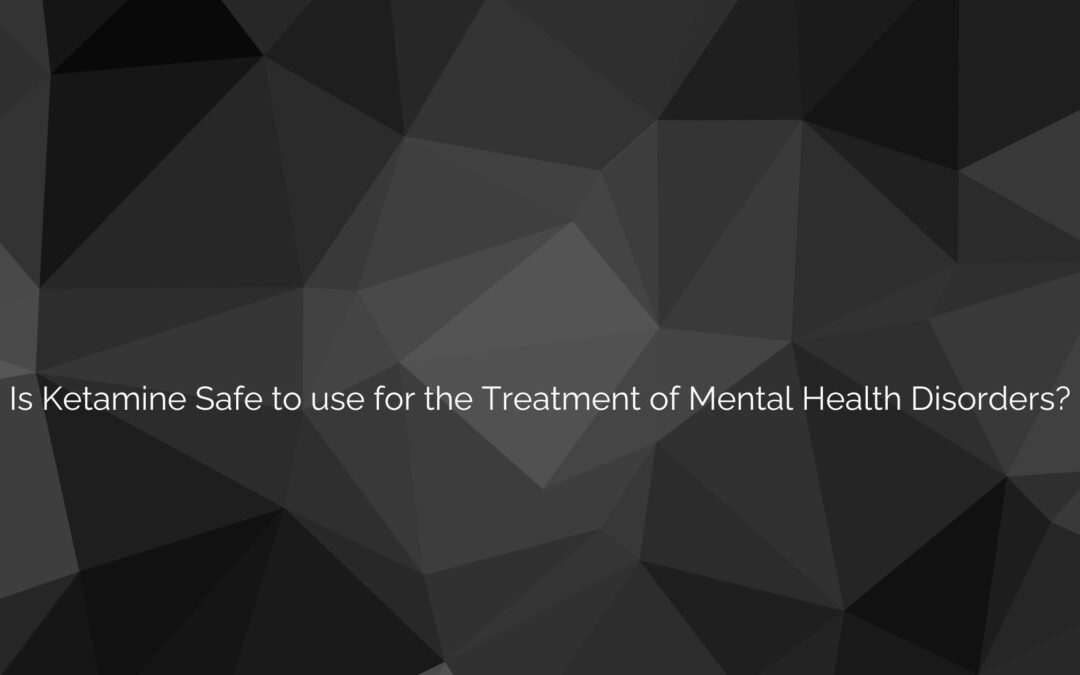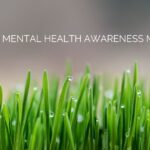In light of recent, deeply saddening news, many of our clients have understandably raised questions and voiced concerns regarding the safety of using ketamine in treating depression, anxiety disorders, PTSD, and eating disorders. We recognize the importance of these concerns and wish to provide clarity and reassurance about the appropriate use of ketamine in mental health contexts.

Moreover, we firmly believe in prioritizing the comfort and safety of our clients. If you, as a client, feel uneasy or believe that your concerns about ketamine treatment have not been thoroughly addressed, we strongly advise against its use for your mental health treatment. Our team is here to discuss any apprehensions or queries you may have, ensuring that your treatment journey is safe, informed, and aligned with your personal well-being.
Learn more about our Ketamine Assisted Psychotherapy (KAP) model here.
Is ketamine safe?
Ketamine is an FDA-approved medicine, most often used for anesthesia and emergency pain relief. Medical professionals have utilized ketamine in the medical setting for over 50 years. In the last two decades, ongoing research on the off-label mental health application of ketamine has shown it to have significant antidepressant properties, as well as a potentially powerful agent in the healing of other mental health concerns, such as PTSD, Anxiety Disorders, and Eating Disorders.
A note on “off-label” prescriptions: The FDA often approves a drug for treating one condition, but once in use, also shows effectiveness in treating a different condition, which is not included in the official labeling. For example, ketamine is FDA-approved as an anesthetic and is also used off-label for mental health conditions such as treatment-resistant depression. In such cases, a medical professional may prescribe the drug for this other condition, constituting an off-label use. Off-label prescribing is legal and common, and it is an important aspect of medical practice, particularly in situations where no specific approved treatment is available for a condition or where existing treatments have failed. It’s important to note that off-label use is based on the prescriber’s professional judgment, and it should be backed by scientific evidence or expert consensus about its safety and effectiveness for the off-label indication. Due to the time and expense incurred by a pharmaceutical company submitting a medication for FDA approval, it is rare for a medication to go through the FDA approval process for additional indications. This is all but unheard of for a medication whose patent has expired (such as ketamine) because there is no financial incentive for a pharmaceutical company to do so. For these reasons, off-label use of medications continues indefinitely.

- A medical provider assesses a client for medical and psychological ‘rule-outs’ that contraindicate the use of ketamine in the therapeutic setting.
- During a ketamine treatment, a medical provider monitors a client’s physical state. At The Catalyst Center, our clients’ vitals, including blood pressure, heart rate, and oxygen levels, are taken before ketamine administration and after the treatment. Additionally, our certified psychedelic therapists are always in the room with our clients, both for support and to ensure physical safety.
- A medical provider determines the correct and safe dose of ketamine for each individual client. A person’s weight, medical history, setting, and intent of the ketamine treatment determine dosage. It is important to note that the dose used for ketamine as a therapeutic/psychedelic medicine is much lower than the doses used in the medical and emergent setting.
To ensure medical safety, potential KAP clients begin with a comprehensive medical screening with our Psychiatric Nurse Practitioner, Adrienne Long, PMHNP-BC. In addition to medical rule-outs, our PMHNP-BC assesses current medications to make sure you are not taking anything that is contraindicated or unsafe to take with ketamine. Examples of medications or substances that are contraindicated include opioids, suboxone, and prescriptions that are respiratory depressants, such as benzodiazepines.
What are some conditions that indicate ketamine treatment is not appropriate?
The following is not an exhaustive list, but some medical rule-outs include:
- Acute or chronic cardiac conditions
- Acute respiratory conditions
- History of a seizure disorder
- Uncontrolled hypertension (high blood pressure)
- History of psychosis
- History of interstitial cystitis

At The Catalyst Center, the well-being of our clients is a guiding principle and core value. Thus, our Ketamine Assisted Therapy program (KAP) is no exception. To ensure quality and safety, our Board-certified Psychiatric Nurse Practitioner and KAP therapist team have completed a 12-month comprehensive training on the use of ketamine in psychedelic doses in therapeutic/clinical settings.
Additional elements of our process and program that ensure safety include:
- Clients begin with a careful screening for contraindications and to reduce side effects. If you are not a good candidate for ketamine therapy, we will assist you in finding alternative treatment options.
- Trained medical staff administer intramuscular ketamine. Medical staff also assess vitals before and after the ketamine treatment. Before and after vitals also apply to low-dose ketamine, which can be used as an adjunct to talk therapy.
- Clients are never alone. A trained KAP therapist is always in the room with you, ensuring a sense of psychological and physical safety.
- The psychedelic dose of ketamine is significantly lower than an anesthetic dose. We tailor each dose to the individual.
- Because our KAP program takes place in a supervised office, there is minimal risk of physical harm that may result from moving your physical body suddenly or intensely, driving under the influence, being near water, operating machinery, or engaging in physical exertion.
- We do not prescribe at home ketamine lozenges to adjunct talk therapy, though there are other providers who do. Even for our low-dose ketamine sessions that utilize lozenges or IM injections, all are done in person with medical oversight and a therapist present.
Interested in learning more?
Psychedelic Support offers a comprehensive guide to ketamine for mental health.
https://psychedelic.support/resources/ketamine-treatment-guide-for-mental-health/
Photo credits:
Photo by OC Gonzalez on Unsplash
Photo by Jesse Gardner on Unsplash
Photo by Cristofer Maximilian on Unsplash




